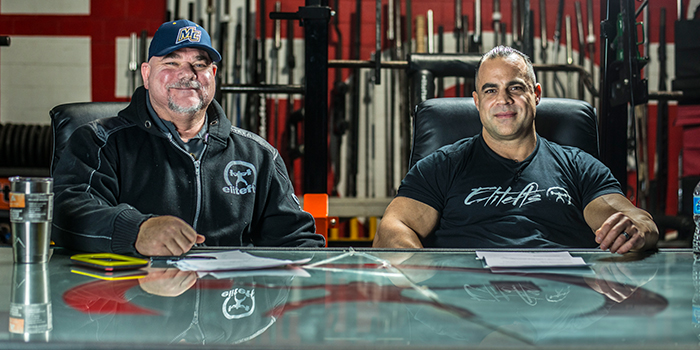
Back at The Table, Dave Tate and Mark Dugdale are taking on more of your questions. Today they respond to a question that their many years of experience helping other lifters makes them uniquely qualified to answer:
How do you qualify a beginner, intermediate, and advanced lifter?
Mark answers first, from a bodybuilding perspective, and says it comes down to total time spent training. The muscles need to be trained over time, for a long time, before you're an advanced lifter. This isn't to say that advanced lifters are going to be better than beginner lifters, or that beginner lifters can't beat intermediate or advanced lifters in a competition. Lifters can train for a very long time yet see terrible to no progress. Likewise, a beginner lifter may see extraordinary progress and surpass intermediate and advanced lifters who have been training for much longer.
Dave begins his answer by mentioning several classifications he's referred to in the past. First, the self-classification:
- If you think you're an intermediate lifter, you're a beginner lifter.
- If you think you're an advanced lifter, you're an intermediate lifter.
- If you think you're a beginner, you're probably an advanced lifter.
Why does this happen? It's simple: because most people don't know what they don't know. Most advanced lifters are constantly trying to learn more, and they recognize how much knowledge they need to gain in order to make it to the next level. This means that if someone self-identifies as an advanced lifter, you can be confident they aren't one.
Then Dave talks about the hurt-injured-fucked up scale:
- If you've been hurt training, you're a beginner. This means you've pulled a muscle.
- If you've been injured, you're an intermediate. This means you've pulled a muscle and been forced to take several weeks off training.
- If you're fucked up, you're advanced. This means you have to train with an issue that's never really going to go away.
Moving past the previous two classifications, Dave explains that he agrees with Mark that the most useful method of classifying yourself as a lifter is by training age. This means that if you've been training for 10 years (whether that's from age 15 to 25 or from age 35 to 45), you are in the same category as someone else who has been lifting for 10 years. They go further into detail about what this means for your training.










